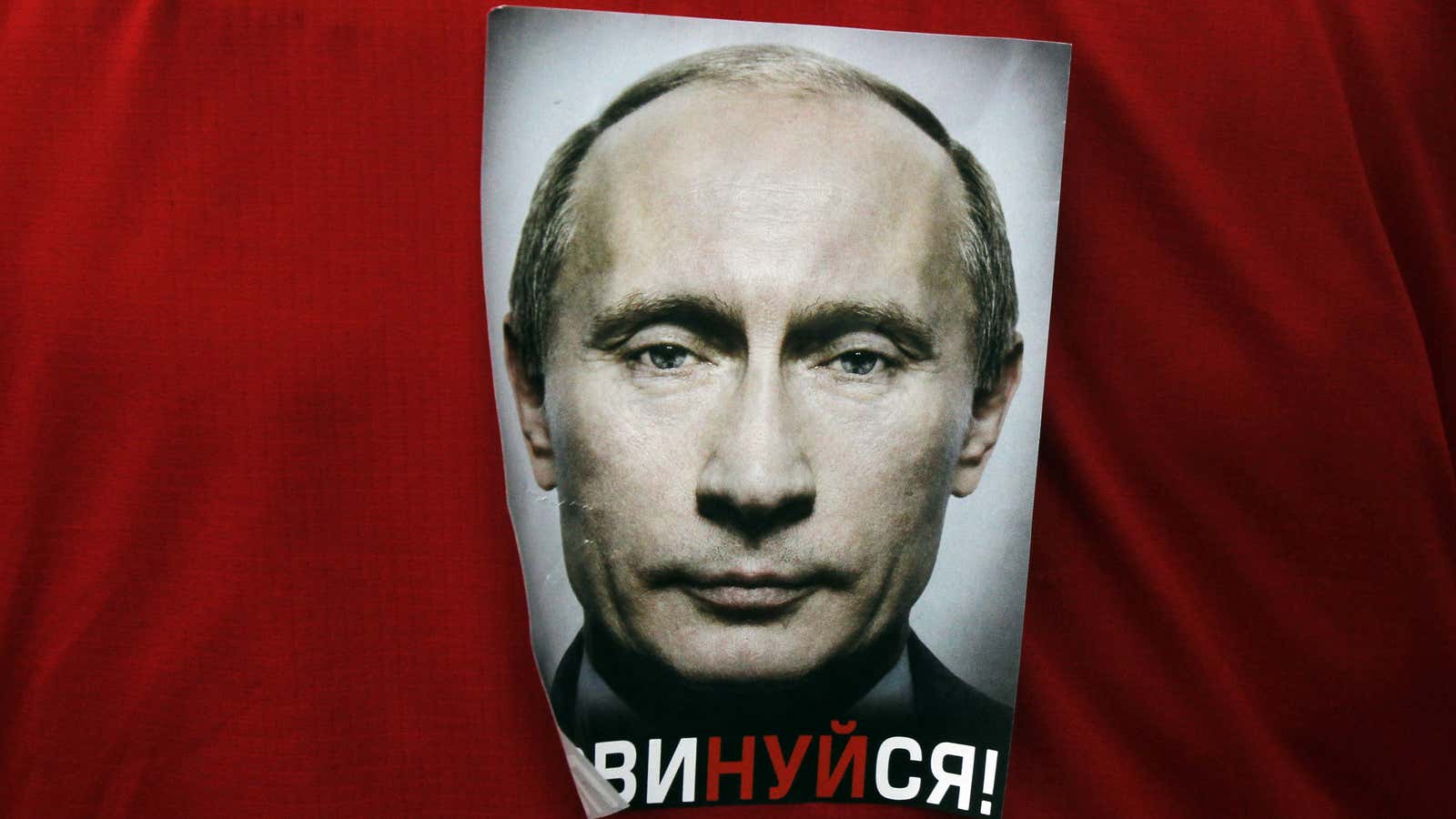The Russian president and the president-elect of the United States are on remarkably good terms, given the two countries’ lingering resentments since the Cold War. If this relationship causes unease for those with concerns about hacking, dictatorial control, or human rights, understanding the philosopher nicknamed “Putin’s Brain” will only deepen this sense of alarm.
Political scientist Aleksandr Dugin, with his pointed beard and imperialist philosophy, would likely be dismissed as too over-the-top to play a convincing Bond villain.
He is virulently opposed to globalism, the international elite, and the existing geopolitical structure where the US is the clear superpower. Instead, he advocates for a world of multiple political powers, each representing bloc of countries. No surprise, then, that Dugin believes Russian should be one such global power.
In Dugin’s utopia, Russia would lead “Eurasia,” which would essentially cover the land mass that was once the former Soviet Union. As the website Bigthink explains, Eurasia would stand for hierarchy, tradition, and strict legal structure, and would be an ideological counterpoint to “Atlantis,” namely the liberalism, individual rights, and free markets represented by North America and Europe.
Dugin’s thinking is influenced by Martin Heidegger, a 20th century German philosopher who unfortunately, and much like a handful of other 20th century German philosophers, has often been misinterpreted with a distinctly fascist bent. Under Dugin’s reading, Heidegger’s writing is a partial explanation for the Russian philosopher’s total opposition to technology. Though, as political philosophy professor Mark Blitz notes, Heidegger saw technology as a “controlling power,” the German thinker believed we could escape technology’s ”bondage” by recognizing its danger rather than rejecting it entirely. Here Dugin disagrees and, believing that technology is form of progress in step with individual liberalism, thinks we should abandon the internet, alongside contemporary sciences, such as physics and chemistry.
Dugin’s ideas are reminiscent of the alt-right movement in the US, and indeed there are ties between the two. Nina Byzantina, wife of alt-right leader Richard Spencer (who gave Nazi salutes and cried “Hail Trump” at a November gathering celebrating Trump’s presidential victory in November) is a scholar who’s translated Dugin’s writing. The Russian philosopher has published articles on Spencer’s website, Alternative Right, reports Business Insider, and recorded a speech titled “To my American Friend in Our Common Struggle,” for a nationalist conference in 2015.
Though Dugin’s close connections with the Kremlin have wavered over the years, he certainly has significant influence on the country’s political ideology. His book, Foundations of Geopolitics, has reportedly been used as a textbook by Russia’s armed forces military academy, and he is a prolific public speaker.
So far, so quintessentially Ruski-mad. But Dugin has also identified an ally in Donald Trump, viewing him as a triumphant opponent to the liberal global elite. After Trump was elected, Dugin told the Wall Street Journal he was elated at the result. “For us it is joy, it is happiness,” he said. “You must understand that we consider Trump the American Putin.”
Dugin has championed Trump ever since the latter announced his candidacy. He favors Trump’s nationalism and is excited that Trump lies outside the established US political system (Dugin viewed other Republicans as neoconservatives intent on extending US’ global power). In the video below, published shortly after Super Tuesday in March, Dugin sings Trump’s praises.
His sign off, for those concerned about how Trump will change the US, is particularly chilling. “In Trump we trust,” cries Dugin.
